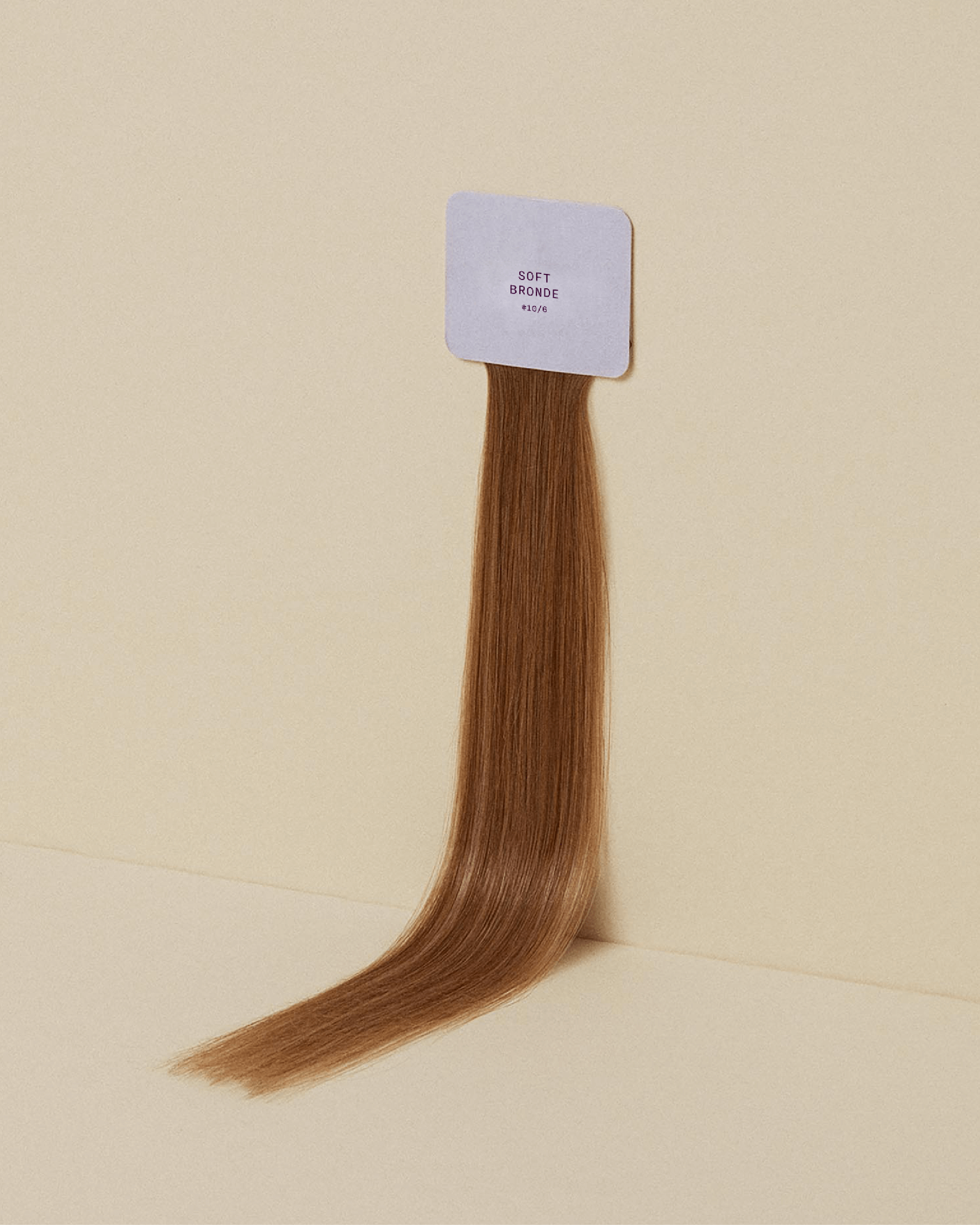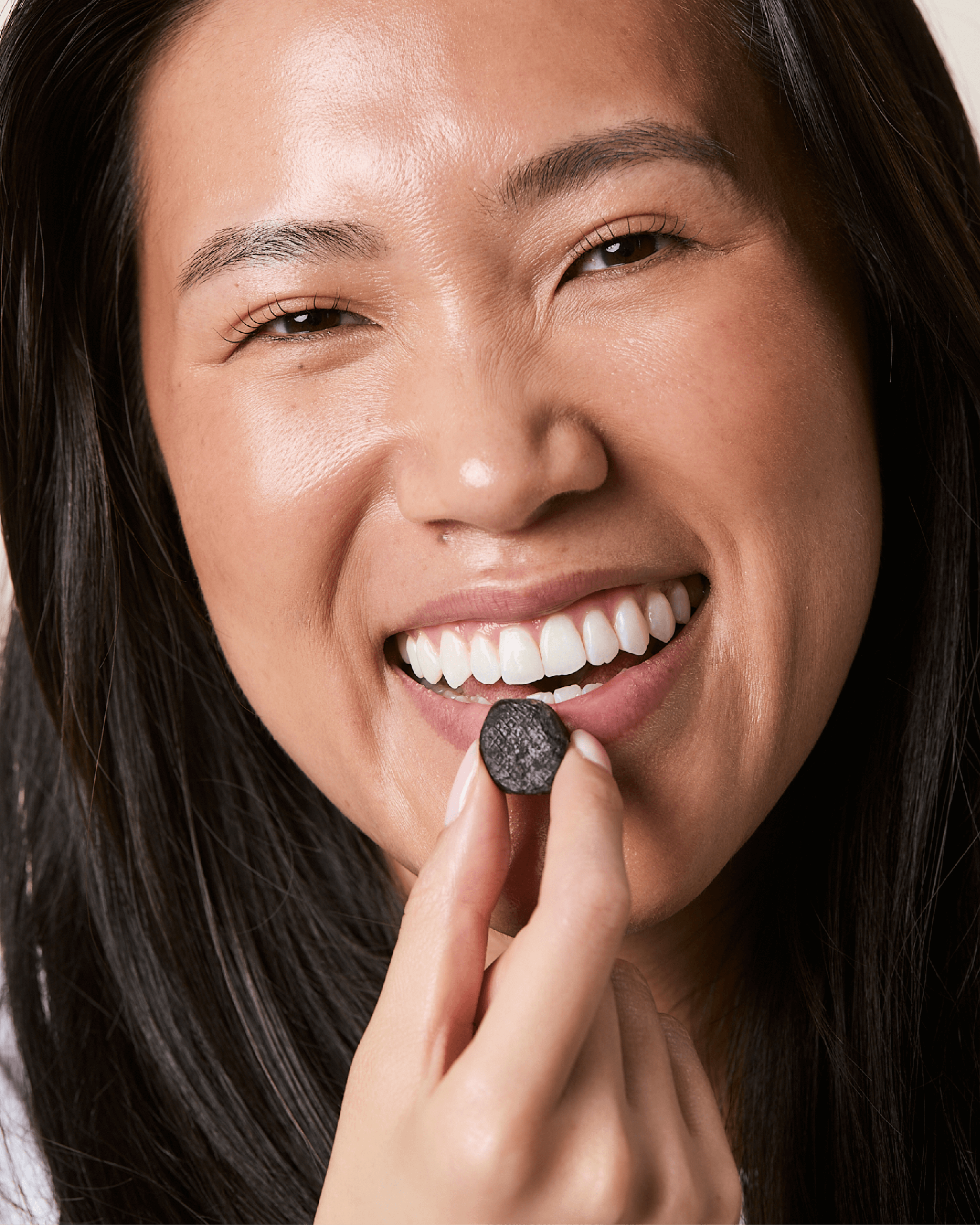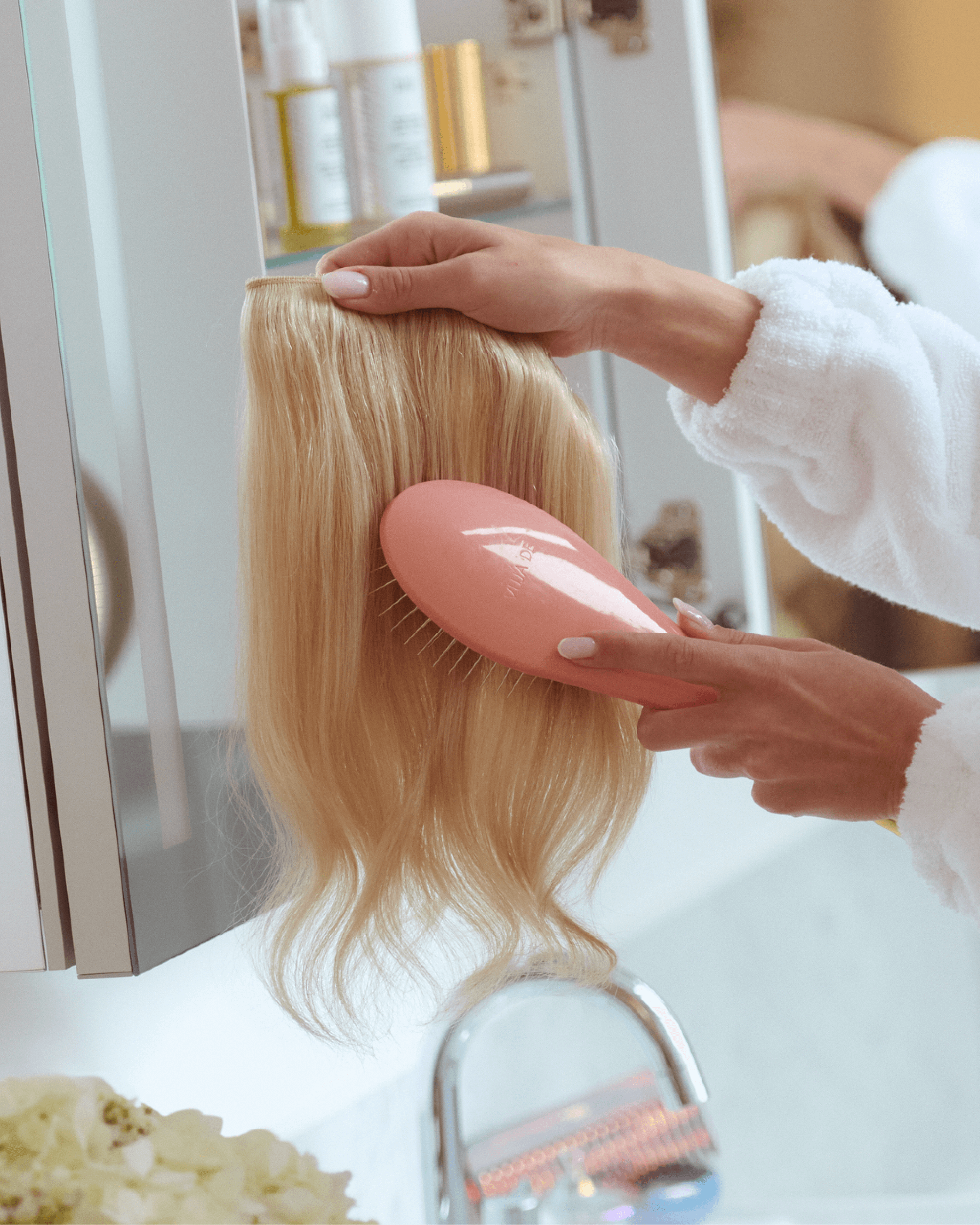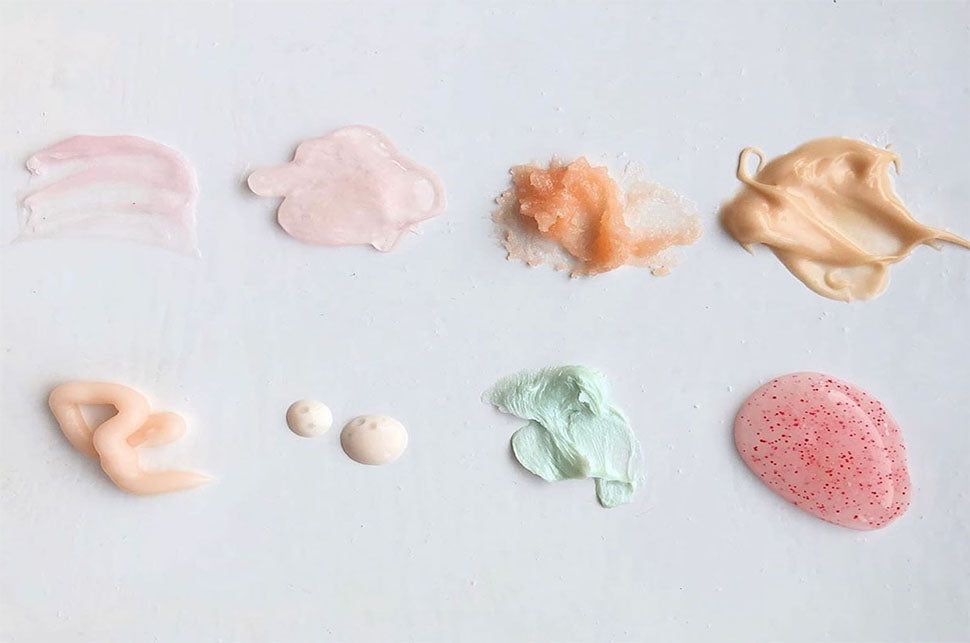They say love is the most important thing in life, but honestly, I think it's skincare.
However you can sometimes have the most comprehensive steps for a skincare routine, and (like most of my crushes) your skin just doesn't care back!
The audacity.
While I think it's mostly due to rudeness on my skins behalf, the truth of the matter is having a killer skincare routine is less about using expensive products and more about consistency, time and patience.
Even the priciest of products won't transform you face in a few days (despite what they may claim).
Of course, ensuring you are using the right kinds of products for your skin type is paramount, but your skincare routine itself is a lot more important than the brands of products you are using.
So, to help you beat the breakouts, I have rounded up my seven steps for the perfect skincare routine.
Read: How to protect your hair while you sleep
Clean your skin in the AM and the PM.

Cleaning your skin is the single most crucial step for any skincare routine.
This is common knowledge, or at least it should be, I'm looking at those of you who still sleep in your make up!
What might surprise you is that clean doesn't always mean cleansed.
Cleansing is, of course, an essential step for skincare, but this step should be saved for the PM.
In the morning, you should clean your face using a washcloth and lukewarm water only.
Plain old H20 is not only perfect for rubbing away the small amount of grime your pores collect overnight, but it also hydrates your skin for the day ahead.
You should use a cleanser at nighttime, or before applying makeup to remove any yuckies that have collected in your pores throughout the day.
What kind of cleanser should I use?
Using the right kind of cleanser for your skin type is far more important than what it costs.
Dry to normal skin: Opt for a cream-based cleanser with hydrating ingredients like honey, oils, glycerin or shea butter.
Sensitive skin: Keep traditional cleansers out of your skincare routine. These can strip away too much of the skin's natural moisture, instead go for a mild, sulphate and fragrance-free cleanser.
Oily skin: Foaming or gel cleansers are best for oily skin. Look for a product containing aloe vera, green tea, citric acid or grape-seed oil to prevent your pores from becoming blocked.
Combination skin: Use a non-foaming gel cleanser.
Acne-prone: Avoid anything that has too many lipids or oils as these ingredients can block pores further; instead, try a cleanser with an exfoliating agent such as salicylic or glycolic acid.
Read The Best Organic Skin Care Products To Upgrade Your Beauty Routine
Exfoliate for smooth skin

Scrub'a' dub' dub; indeed, an exfoliant should be a step for your skincare routine.
Not only do exfoliants help to clean dirt, grime and other things we shall not name, from your pores, they also strip away dead skin cells.
Exfoliating at night will leave your skin looking and feeling fresher, cleaner and clearer.
What is the best exfoliant for my skin type?
Exfoliants vary significantly in their strengths, so it is essential to know not just the kind of exfoliant you need, but how often you should use it according to your skin type.
Dry to normal skin: Avoid exfoliants with alcohol, go for formulas containing shea butter, coconut oil or ceramide to hydrate your skin and use twice a week.
Sensitive skin: Always opt for a gentle chemical exfoliant instead of a physical one such as a sponge or glove. These will only cause redness and inflammation. Use once or twice a week.
Oily skin: Oily skin has a high tolerance so feel free to exfoliate up to five times a week, providing you don't notice any rashes or irritations. Salicylic or glycolic acids are best for oily skin and try not to moisturise excessively afterwards.
Combination skin: Keep you exfoliant most in your T-zone and use sparingly on other areas. Heavily apply moisturiser to dry areas and lightly to oily areas following exfoliating.
Acne-prone: Exfoliating can cause further irritation to chronic or cystic acne, so avoid it altogether if this is the case. However, it can also be beneficial to unclog pores. Opt for a chemical exfoliant instead of a physical exfoliant such as a wipe. Look for ingredients like lactic acid, papain, and bromelain as well as glycolic and salicylic acid.
Read Jordan Simek's Daily Hair Routine + Evening Glam Tutorial
Balance your skin's pH with a toner

Toners are probably one of the most under-appreciated steps for skincare routines.
But, using the wrong toner, or worse no toner at all could be the reason your skin is acting up.
(definitely not the tequila and pizza from Saturday night).
If you don't know precisely what toner does, it restores the pH balance for your skin.
Harsh soaps, minerals in our shower water and lots of things we use on the daily can make our skin's pH level too basic.
So it is vital to take regular precautions to restore these levels.
Toners can be a little harsh on your skin, so avoid using them in the morning when your face is already clean and fresh from the night before.
Instead, only tone your face at night.
The most effective way to apply toner is after cleansing, using your hands, add a few drops to your palm and gently pat it into your skin, or use a cotton pad to gently wipe and pat your skin.
Which toner should I use for my skin type?
Using the wrong kind of toner can do more harm than good, especially for those with sensitive skin, so you must ensure you have the right kind for your skin type.
Dry to normal skin: Be especially careful when shopping for toner if you have dry skin. Look for low alcohol content and hydrating ingredients like aloe vera, fruit extracts, essential oils and vitamin E.
Sensitive skin: Look for a toner specially formulated for sensitive skin. These products are made to be gentle and with little to no alcohol, and soothing ingredients like rose water, aloe and hyaluronic acid.
Oily skin: Go for a toner enriched with alpha or beta hydroxy acids. Witch Hazel is also an excellent ingredient to look out for as it absorbs excess oil and reduces acne.
Combination skin: Toners that are rich in antioxidants and hydrating compounds will help the dried parts of your skin while keeping the oily parts at bay.
Acne-prone: Benzoyl peroxide and salicylic acid are two powerful acne-fighting ingredients, look for a toner with high concretions of either one of these.
Read The Most Nourishing Foods For Healthy Skin & Hair
Serums are your skin's best friend.

Forget diamonds. Nothing makes your skin sparkle like a serum.
Serums are packed full of properties that tackle everything from dark spots to wrinkles, dullness and even acne.
Even if you don't experience any particular skin issues, you should still apply a general antioxidant serum in the mornings.
It isn't as important to tailor your serum to your skin type.
An antioxidant serum will work well for all skin types as they blunt the skins anti-inflammatory response as well as counteracting the damage caused by the sun and the environment.
If you want to tackle a particular issue such as dryness, dullness or ageing, there are plenty of serum's tailored to specific concerns too.
Read 5 Beauty Brands That Give Us The Warm and Fuzzies
Don't skip moisturiser

@meccacosmetica
I don't care if you have the oiliest of all the oily skins, you still need to moisturise.
Moisturising should be one of the only steps in your skincare routine that you repeat morning and night.
Mainly, moisturiser is designed to hydrate and soften your skin.
It all helps protect it from the day to day baddies that give us acne.
(unfortunately, this doesn't apply to chocolate)
**looks at a chocolate bar, breaks out**
Moisturiser should always be applied while your skin is slightly damp to lock in moisture, restoring hydration and youthfulness to the skin.
What kind of moisturiser should I be using?
While hydration is moisturisers primary purpose, the right product can also have ample benefits on your skin.
Dry to normal skin: Moisturiser is made for you, literally. However, they still come in varying levels of hydration, so it makes sense to opt for the most moisturising moisturiser on the market.
Sensitive skin: Moisturiser is heaven-sent for those with sensitive skin, make sure to chose one with mild and soothing ingredients. For best results, go for one that's dermatologist approved.
Oily skin: Oil is not the same as moisture. I think this is where a lot of people get confused. You can have oily skin which is still extremely dehydrated, so never skip moisturiser. For oily skin, go as natural and as light as possible when choosing a moisturiser.
Combination skin: Combination skin is hard. One side of your face is Niagara falls, while the other is the Arabian Desert. To balance out the dry vs oily, look for a product that contains vitamins A, C, D, and E and aloe vera. Apply the product heavily in dry areas and sparsely in oily areas such as the T-Zone.
Acne-prone: The key here is finding a moisturiser that hydrates your skin but doesn't clog your pores. To find this balance, go for a lightweight formula and apply sparingly in a dapping motion to damp skin.
Read Hairtox Smoothie: The Ultimate Hair Growth Boosting Smoothie Recipe
Sunscreen, the new skincare essential

@sannejackson
From Slip, Slop Slap to the beauty expert's product of choice, sunscreen has had a massive glow up as a beauty staple in the last few years.
And it is probably one of the most essential steps in your skincare routine.
Skipping the sunscreen can render your entire skincare regime obsolete.
Even if it's a rainy or cloudy day, even if you have a hat on, even if you're covered head to toe in protective gear in the middle of the arctic, for the love all things skin, NEVER skip the sunscreen.
Apply SPF 50 + in the morning every morning after moisturising and re-apply throughout the day, especially if you're spending time outside.
Read Expert Makeup Artists Share Their Secrets To Natural Beauty
Drink at least 2 litres of water

@thebeautychef
What's on the outside is all about what's on the inside.
And what's on the inside should be at least 2 litres of H20.
Seriously we grow up thinking the coffee and alcohol are the adult drinks, only to grow up and feel and look dehydrated all the time.
Water is the real adult drink and the real MVP when it comes to skincare.
Make sure chugging at least eight glasses of liquid gold is a step on your skincare routine.
Read How To Hydrate Your Hair By Hair Type
Cover image @indiebeautyexpo
Read more
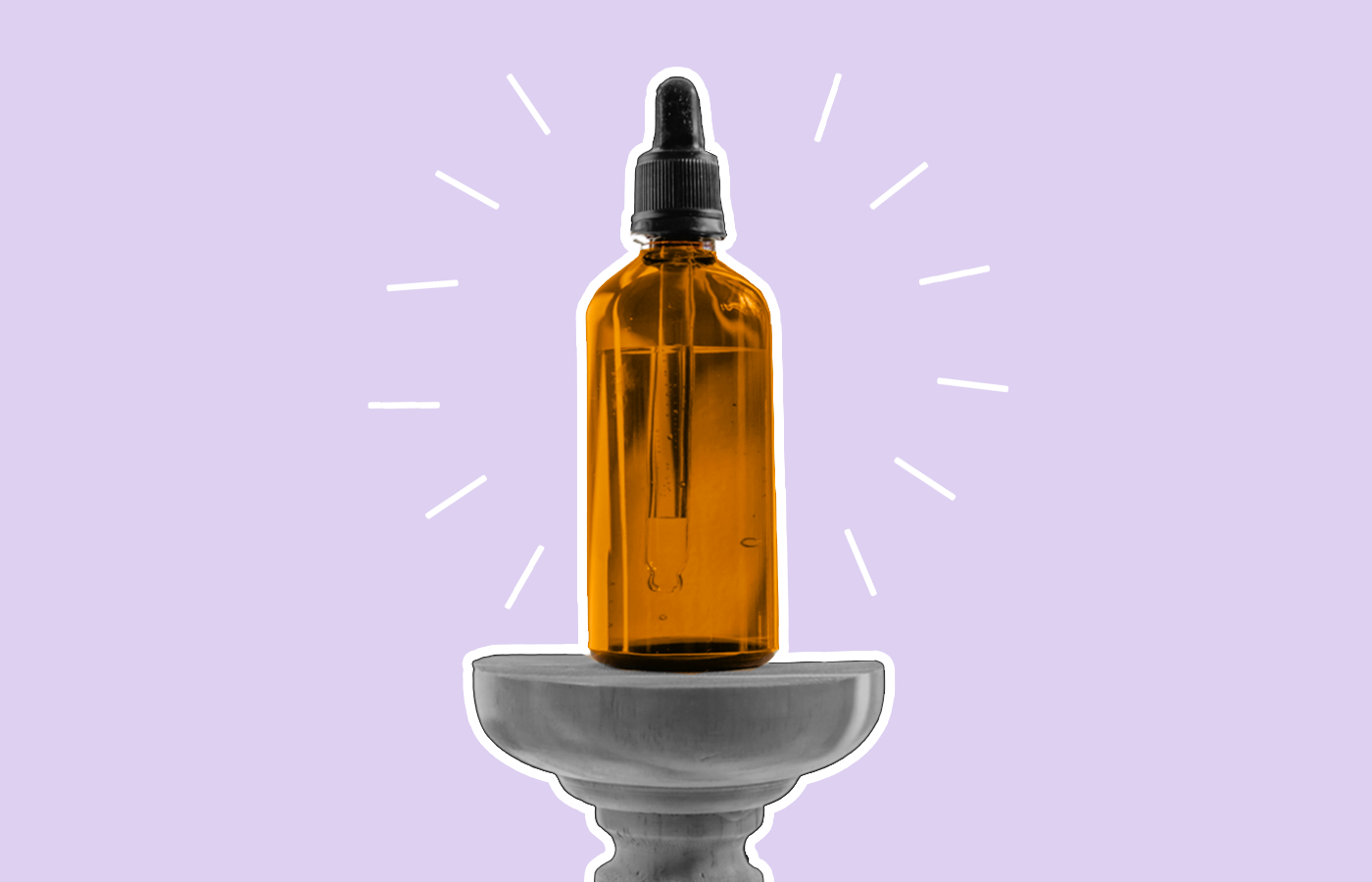
Cast-or your eyes on these ten castor oil hairs masks and their benefits.
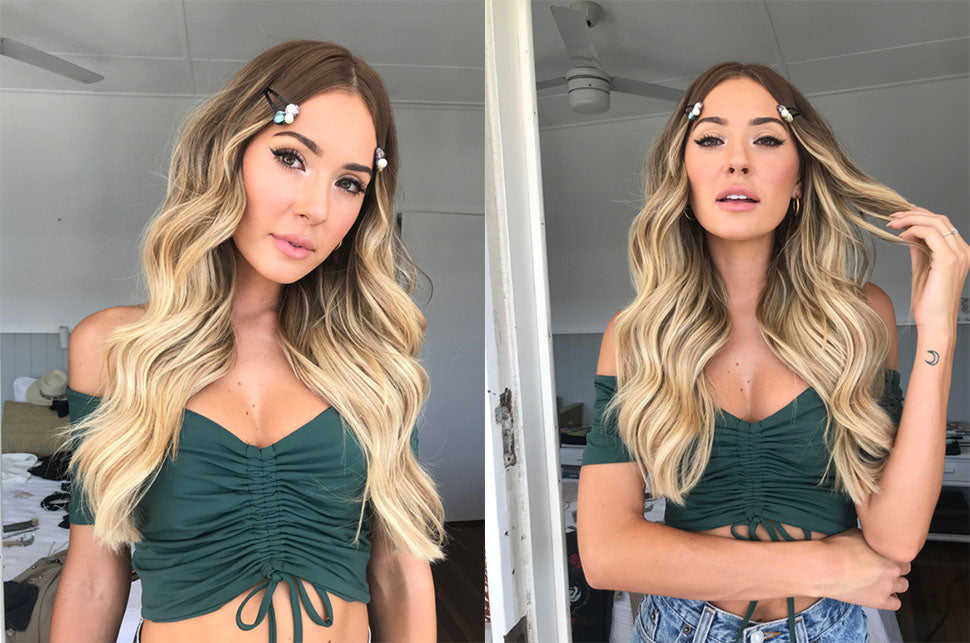
Ombre shows no signs of fading out. To help you find an ombre hair colour to suit your style and complexion, I have rounded up my favourite ten ombre hair colours trending right now.
